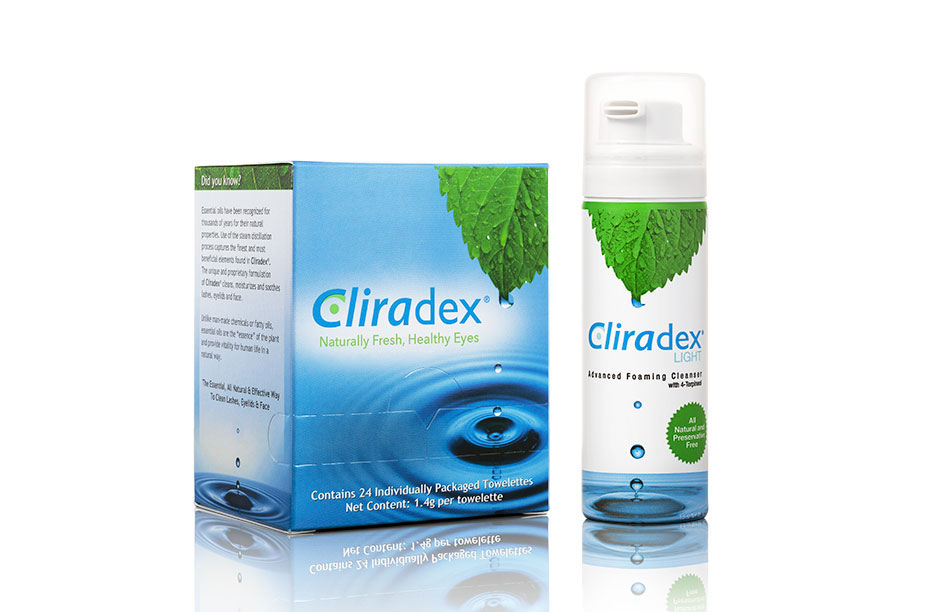






Ruling out allergies, there are many lid margin diseases like dry eye, meibomian gland dysfunction, ocular rosacea, stye, and chalazion. The most common is Blepharitis (eyelid inflammation) caused by bacteria and Demodex mites, probably the most undiagnosed cause of Blepharitis. Demodex infestation is very common, present in 84% of the population at age 60, and 100% in patients older than 70 1.
The first step to prevent and relieve lid inflammation is better eyelid hygiene. Cliradex eyelid cleansers are specially formulated to deep cleanse your face and eyelid to relieve irritation and for the removal of Demodex mites.
1. Liu, Jingbo & Sheha, Hosam & Tseng, Scheffer. (2010). Pathogenic role of Demodex mites in blepharitis. Current opinion in allergy and clinical immunology. 10. 505-10. 10.1097/ACI.0b013e32833df9f4.

Cliradex eyelid cleansers are a natural, preservative-free way to deep cleanse the eyelashes, eyelids, and face and help relieve symptoms associated with Demodex, blepharitis, meibomian gland dysfunction (MGD), rosacea, dry eye, chalazion, and other lid margin diseases.
Cliradex is uniquely formulated with 4-terpineol, the most important component of tea tree oil. It will help remove Demodex mites and clean away crusts, dandruff, and bio-materials. Our science-based formula is:
Cliradex is available as Towelettes & Foam.
Get Started